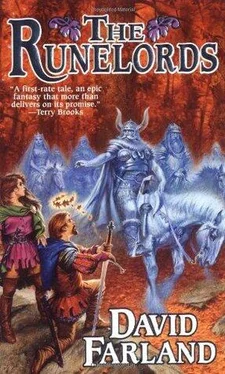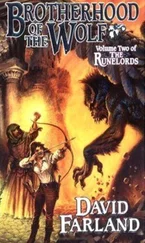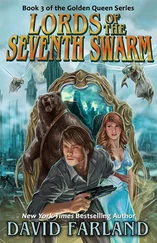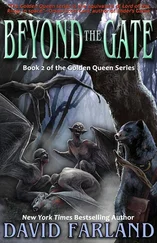David Farland - The Sum of All Men
Здесь есть возможность читать онлайн «David Farland - The Sum of All Men» весь текст электронной книги совершенно бесплатно (целиком полную версию без сокращений). В некоторых случаях можно слушать аудио, скачать через торрент в формате fb2 и присутствует краткое содержание. Жанр: Фэнтези, на английском языке. Описание произведения, (предисловие) а так же отзывы посетителей доступны на портале библиотеки ЛибКат.
- Название:The Sum of All Men
- Автор:
- Жанр:
- Год:неизвестен
- ISBN:нет данных
- Рейтинг книги:3 / 5. Голосов: 1
-
Избранное:Добавить в избранное
- Отзывы:
-
Ваша оценка:
- 60
- 1
- 2
- 3
- 4
- 5
The Sum of All Men: краткое содержание, описание и аннотация
Предлагаем к чтению аннотацию, описание, краткое содержание или предисловие (зависит от того, что написал сам автор книги «The Sum of All Men»). Если вы не нашли необходимую информацию о книге — напишите в комментариях, мы постараемся отыскать её.
The Sum of All Men — читать онлайн бесплатно полную книгу (весь текст) целиком
Ниже представлен текст книги, разбитый по страницам. Система сохранения места последней прочитанной страницы, позволяет с удобством читать онлайн бесплатно книгу «The Sum of All Men», без необходимости каждый раз заново искать на чём Вы остановились. Поставьте закладку, и сможете в любой момент перейти на страницу, на которой закончили чтение.
Интервал:
Закладка:
Binnesman said something then, words that would haunt Gaborn forever. And as Binnesman spoke the secret, Gaborn felt his mind begin to unhinge: “Milord, have you not understood? Choosing a man for the Earth is not enough. The powers of Earth are weakening, while Fire grows strong. Each person you seek to save, Fire will only seek more fully to destroy. And it will seek to destroy you above all.”
Gaborn gasped and his heart froze at the recognition, for surely he'd felt this all along—this secret nagging suspicion. The new powers he'd felt stirring within him bore a tremendous price. By choosing to love someone, by seeking to save a person, he marked the person, made him a target.
“How then? How can I do anything?” Gaborn asked. “What does it benefit a man to be chosen?”
“In time, we will learn to use your powers,” Binnesman said. “You think that benefit is slight, and perhaps that is so. But is the benefit slight to a man, if it means the difference between life and death?”
As Gaborn considered, he recognized that he'd done some things right. He'd saved Iome when Raj Ahten hunted them. He'd managed to save Borenson at Longmont. He'd drawn Myrrima here for reasons he did not yet understand, and he suddenly felt sure to the marrow of his bones that if he'd not sent Borenson back to warn Myrrima of the invaders in the woods, the whole family would have been slaughtered.
Without the aid of Gaborn's fledgling powers, many more would be dead now.
Yes, I've done something. But I must do far, far more.
“What will you now, milord?” Binnesman asked, almost as if divining his thoughts.
“What would you advise?” Gaborn said.
“You are the king; I am merely a servant, and no counselor,” Binnesman said. “The earth will serve you in ways it would never serve me. I have no idea what you should do.”
Gaborn considered. “There are forcibles hidden here in the garden,” Gaborn said with a sigh. “I'll dig them up. Raj Ahten believes I already have them, that I've already used them. By the time he returns, I shall have done it. He may become the Sum of All Men, but I shall be the sum of all his nightmares.
“You know much about ancient lore,” Gaborn said. “Can he do it? Can he become the Sum of All Men?”
“Not of all men,” Binnesman said. “He craves power, the guarantee of a continued existence. I do not know much of the Runelords' arts, but I know this: If he seeks to become the Sum of All Men, perhaps he should go to the source, learn how it is done.”
“What do you mean?” Gaborn asked.
“We Earth Wardens live a long time. Lives given in service are usually long, and lives given in service to the land can be longest of all. Yet when I was young, four hundred years ago, I once met a man of the South. I met him at an old inn near Danvers Landing. He seemed only a young Runelord, some traveling noble. But a hundred and eighty years ago, he came north and visited Castle Sylvarresta for the summer. At least I believe it was him. There had been trouble that year to the north with reavers and with robbers. He put an end to them both. Then he went south again.”
“Daylan Hammer? You are telling me that Daylan Hammer still lives? The Sum of All Men? After sixteen hundred years?”
“I am telling you that he may live,” Binnesman said. He shook his head thoughtfully. “I could be mistaken. I've never told this tale to anyone. Perhaps it is unwise to tell you now.”
“Why?”
“He did not seem to be a happy man. If he has secrets, they should remain with him.”
“Is happiness everything?” Gaborn asked.
“Yes, ultimately I believe it is,” Binnesman said. “It should be the goal of your existence, to live life in peace and joy.”
Gaborn considered. “Am I wrong to fight Raj Ahten using his own tactics? To fight him at all.”
“To fight him is dangerous,” Binnesman said. “Not just dangerous for you, dangerous for the whole world. If he would join your cause, I would rejoice. But he will oppose you, and it is not for me to say whether you should fight him. It shall be your task to gather the seeds of humanity. You must decide which to save, which to toss aside.
“You have already begun your task.” He waved to the manor house, where Borenson and Myrrima cooked in the dining hall.
Gaborn shuddered at the thought of his task, that he was supposed to somehow gauge the worth of men, save some, discard others. This would have to become the work of his whole soul, his every waking thought. Yet even then, he had no guarantee that he could succeed. “What of Iome?”
“A good woman, I think,” Binnesman said. “She is very much in touch with the powers, can feel their most subtle influence, better than you—or I. She would be an asset.”
“I love her,” Gaborn said.
“Then what are you doing here?” Binnesman asked.
“Giving her time alone, to grieve. I fear that if she accepts me, her people might revolt. They will not want me.”
“I would not worry about her people, only about her. Do you think she wants you to leave her alone? Do you think she doesn't love you?”
“She loves me,” Gaborn said.
“Then go to her, soon. If she grieves, then grieve with her. Sharing our pain makes our wounds heal faster.”
“I...it wouldn't be a good idea. Not now. Not so soon—after.”
“I spoke with her not an hour ago,” Binnesman said. “She asked for you. She wants to see you on some urgent matter, tonight—soon.”
Gaborn studied the wizard's face, wondering. It seemed madness to go to her now, considering how her people felt about him. Yet if Iome had asked for him, perhaps she had good reason. Perhaps, he thought, they had treaties to discuss. She would need money to repair her castle. House Sylvarresta knight need loans, armies...
He would give whatever she asked, of course.
“All right,” Gaborn said. “I'll see her.”
“At sunset,” Binnesman said. “Don't let her be alone after sunset.”
Binnesman's words encouraged Gaborn. What good was it to have a wizard as your counselor, he reasoned, if you did not listen to his wisdom?
61
Peace
Gaborn did not leave the manor before sunset. He took time to warm some water in the kitchens, to bathe and rub his hair with lavender; to scrub his armor with the soft leaves of lamb's ear, so that he'd present himself well.
By evening the clouds blew out of the region altogether, and warmer air now suffused the night, almost as if it were any other afternoon in late summer. The scents of grass and oak grew strong in the air.
Borenson and Myrrima stayed behind at the manor.
Only the wizard Binnesman and Gaborn's Days rode with him to Longmont. There, thousands of people worked in the twilight, salvaging supplies from the castle, cleaning the dead. More warriors arrived from farther north—eight thousand knights and men-at-arms from Castle Derry, headed by Duke Mardon, arriving unexpectedly at the summons of Groverman.
Gaborn reached camp, and was escorted to Iome by a guard who seemed friendly enough.
Custom in Heredon dictated that the dead be interred before sunset on the day of their death, but so many lords and knights were swelling in from the hills around Longmont, setting up tents, that King Sylvarresta could not be buried. King Orden, too, had not been interred, and whether this was done as an honor, so that the kings might be buried together, or because the people did not want to bury a foreign king on their soil, Gaborn did not know.
But too many people wanted to view the bodies, to pay their last respects.
Gaborn found Iome still mourning her father. The bodies had been cleaned and laid out on fine blankets over beds of paving stones. The Earl of Dreis lay near their feet, in a place of honor.
Читать дальшеИнтервал:
Закладка:
Похожие книги на «The Sum of All Men»
Представляем Вашему вниманию похожие книги на «The Sum of All Men» списком для выбора. Мы отобрали схожую по названию и смыслу литературу в надежде предоставить читателям больше вариантов отыскать новые, интересные, ещё непрочитанные произведения.
Обсуждение, отзывы о книге «The Sum of All Men» и просто собственные мнения читателей. Оставьте ваши комментарии, напишите, что Вы думаете о произведении, его смысле или главных героях. Укажите что конкретно понравилось, а что нет, и почему Вы так считаете.












